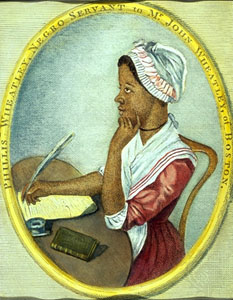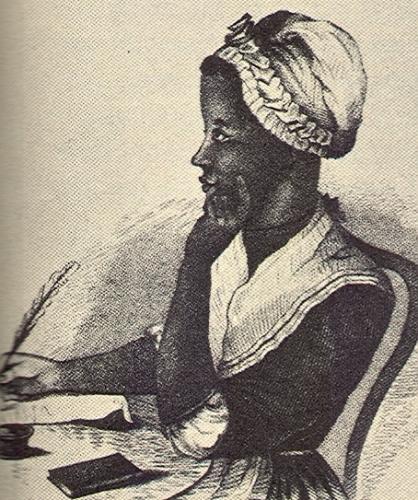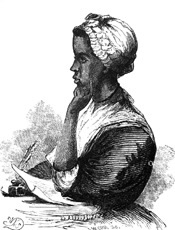What If Phillis Wheatley Was a Black Nerd?
 This semester, I’m working with a group of students concerning the topic “black nerds.” Although we are primarily focusing on literary representations of bookish, sometimes socially awkward, and isolated figures from 20th century and 21st century narratives, my mind keeps drifting back to some of the early black nerds—long before that phrase and even those terms “black” and “nerd” were as popular.
This semester, I’m working with a group of students concerning the topic “black nerds.” Although we are primarily focusing on literary representations of bookish, sometimes socially awkward, and isolated figures from 20th century and 21st century narratives, my mind keeps drifting back to some of the early black nerds—long before that phrase and even those terms “black” and “nerd” were as popular.
Along those lines, I couldn’t help thinking about the sister Phillis Wheatley. Was she an early version of a black nerd? She was highly intelligent. Bookish. Hard to say if she was socially awkward, but she was inevitably distant or isolated from black folks and white folks for various reasons.
 Beyond whether Wheatley was a nerd then, she’s so often viewed as a nerd now. Some of my students in past classes have embraced her as a talented writer who was subversively critiquing white people. But I also have students who criticize Wheatley for selling out and catering to white folks and their values and interests.
Beyond whether Wheatley was a nerd then, she’s so often viewed as a nerd now. Some of my students in past classes have embraced her as a talented writer who was subversively critiquing white people. But I also have students who criticize Wheatley for selling out and catering to white folks and their values and interests.
Somewhere in the praises and critiques directed at Wheatley during those conversations, perhaps she’s being characterized in ways that relate to black nerds. Folks read her writings and view her as an erudite poet. The thought is that she could—for better or worse—relate quite well to her Eurocentric masters (her owners and literary forbearers).
 It’s likely that the most popular images of Wheatley are those drawings and paintings that show her seated with a pen in her hand. She looks studious and refined, not like those typical images of slaves in tattered clothing.
It’s likely that the most popular images of Wheatley are those drawings and paintings that show her seated with a pen in her hand. She looks studious and refined, not like those typical images of slaves in tattered clothing.
Of course no one refers to Wheatley as a black nerd in any direct way. But the idea that she is an “intimate stranger,” a phrase used by Trudier Harris in her essay “Black Nerds,” does hover around the descriptions and portrayals of this enslaved black woman who became a poet.
When we think of “struggles for freedom,” we tend to focus on dramatic escapes or attempted escapes from physical bondage. But what about the plightt of a Phillis Wheatley who labored at some point to learn to read and write? What about an enslaved black woman who could’ve been more interested in flights of imagination as opposed to myths of flying Africans?
What if in addition to being one of our earliest African American poets, Phillis Wheatley was also one of our early black nerds?
Howard Rambsy II teaches African American literature and directs the Black Studies Program at Southern Illinois University Edwardsville. He blogs and tweets about African American artistic thought, publishing history, and technology at http://www.siueblackstudies.com/ and http://twitter.com/@blackstudies